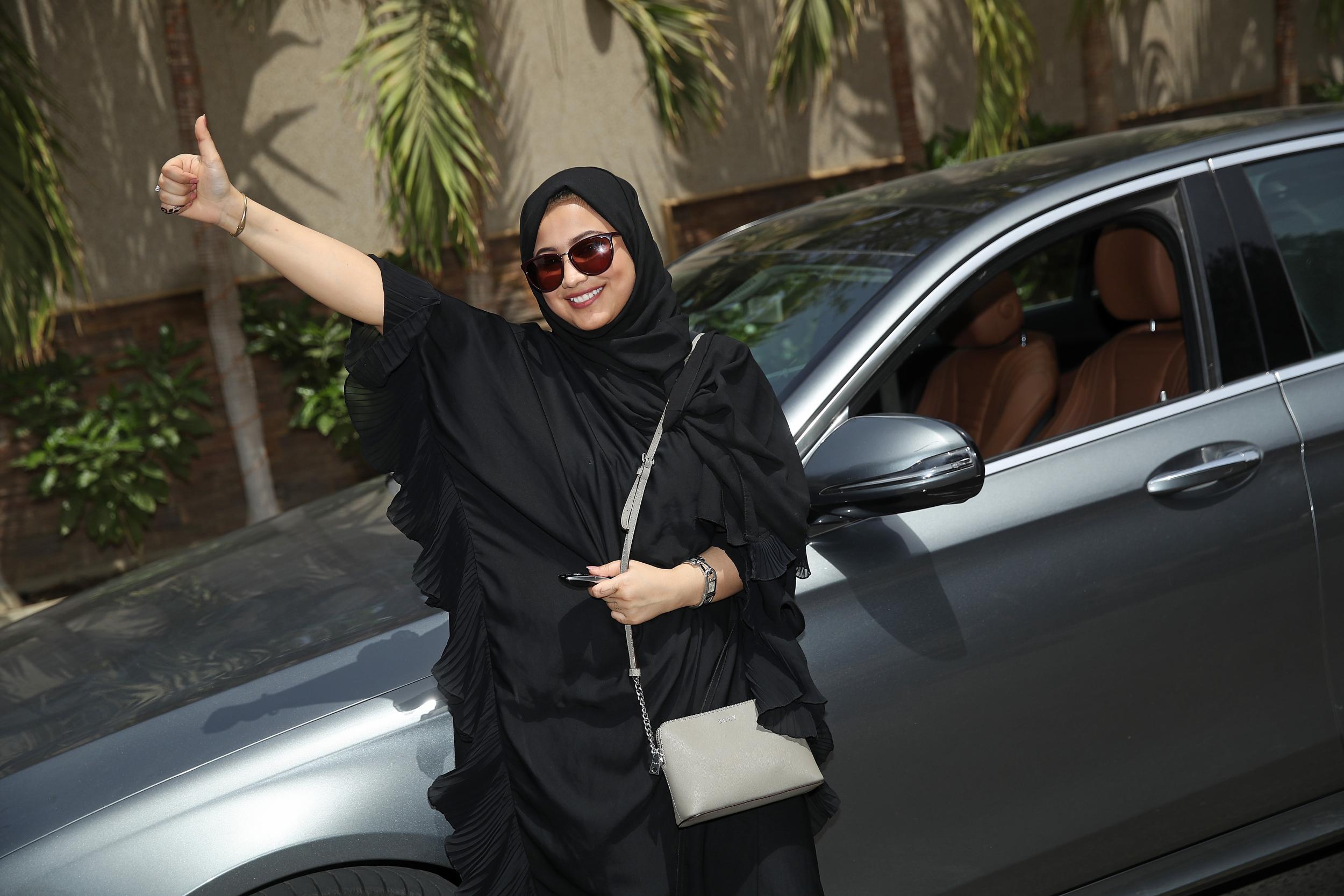'Everything is an adventure now': Saudi women celebrate new driving freedoms as ban is lifted
Learning to drive will still depend on the goodwill of male relatives – but for many Saudi women, the end of the ban offers a first taste of independence

“I feel so free. I feel like I can do anything,” Bayan al Soumady says over the phone from Riyadh. The excitement in her voice is infectious. “I drove myself to work today. Maybe it’s just a little thing, but everything feels like an adventure now.”
The 24-year-old pharmacist is one of thousands of women across Saudi Arabia who took to the road for the first time on Sunday after the kingdom abolished its long-standing ban on women driving.
As the clock struck midnight, in a show of solidarity and celebration, women did victory laps around the centres of Riyadh, Jeddah and Dammam, trailed by Saudi television crews and the rest of the world’s media.

Throughout Sunday – the first day of the Saudi working week – women who had already managed to convert their foreign driving licences stepped into newly purchased cars, or borrowed those belonging to fathers and husbands, to commute to work and run errands alone. Some headed out of the cities on the long, straight desert roads to drive fast for the pleasure of it.
“Life can feel very complicated here sometimes,” says Bayan, who is half Syrian and learned to drive while studying in Damascus.
“It’s frustrating not being able to rely on yourself for simple things like going to the supermarket 10 minutes away. I know it doesn’t fix everything – but being able to drive is a big step,” she adds.
The historic moment gives women unprecedented freedom in a country where the male guardianship system effectively renders them second-class citizens, unable to make many important decisions for themselves.
Saudi Arabia’s tiny activist community has fought against the ban since it was enforced by police and licensing agencies in 1990. A surprise royal decree from King Salman last September, however, announced the end of a policy which has been perhaps the foremost symbol of the oppression faced by women in the conservative kingdom. The move, designed to help get more women into the Saudi workforce, is part of a raft of wide-ranging social and economic reforms installed by crown prince Mohammed bin Salman in the year since his appointment.
To hammer home the message that change in Saudi Arabia comes from the top down, in the weeks leading up to the lifting of the ban 17 prominent activists have been arrested. Eight are still being held without access to their families or lawyers, and no charges have been brought against them.
Despite the crackdown, many ordinary Saudis embraced what one national newspaper called “history in the making”.
“The logistics of half a country suddenly being able to learn to drive are quite something,” Susan Newbon, a British driving instructor training Saudi women to teach their own students, tells The Independent. “Honestly, I’ve never seen anything like it. It’s a very strange but very important occasion.”
Some women will have to wait a while to get behind the wheel; there are huge waiting lists for gender-segregated lessons across the country, and a course of classes can cost hundreds of dollars. That is an extravagant expense in a country where households are tightening the purse strings following a global plunge in oil prices and amid national austerity measures.

Learning to drive will also still depend on the goodwill of husbands, fathers or sons – meaning women from conservative families will not be enjoying their new right yet.
On Sunday, at least, the mood across the country was jubilant, with “tawakkali wa intaliqi”, or “have faith and drive”, celebratory events taking place across the kingdom.
“I’ve been using my husband’s car today,” Bayan says. “But I’m going to get my own as soon as possible. Everything feels different today. I really think this could be the tipping point for Saudi women.”
Join our commenting forum
Join thought-provoking conversations, follow other Independent readers and see their replies
Comments
Bookmark popover
Removed from bookmarks